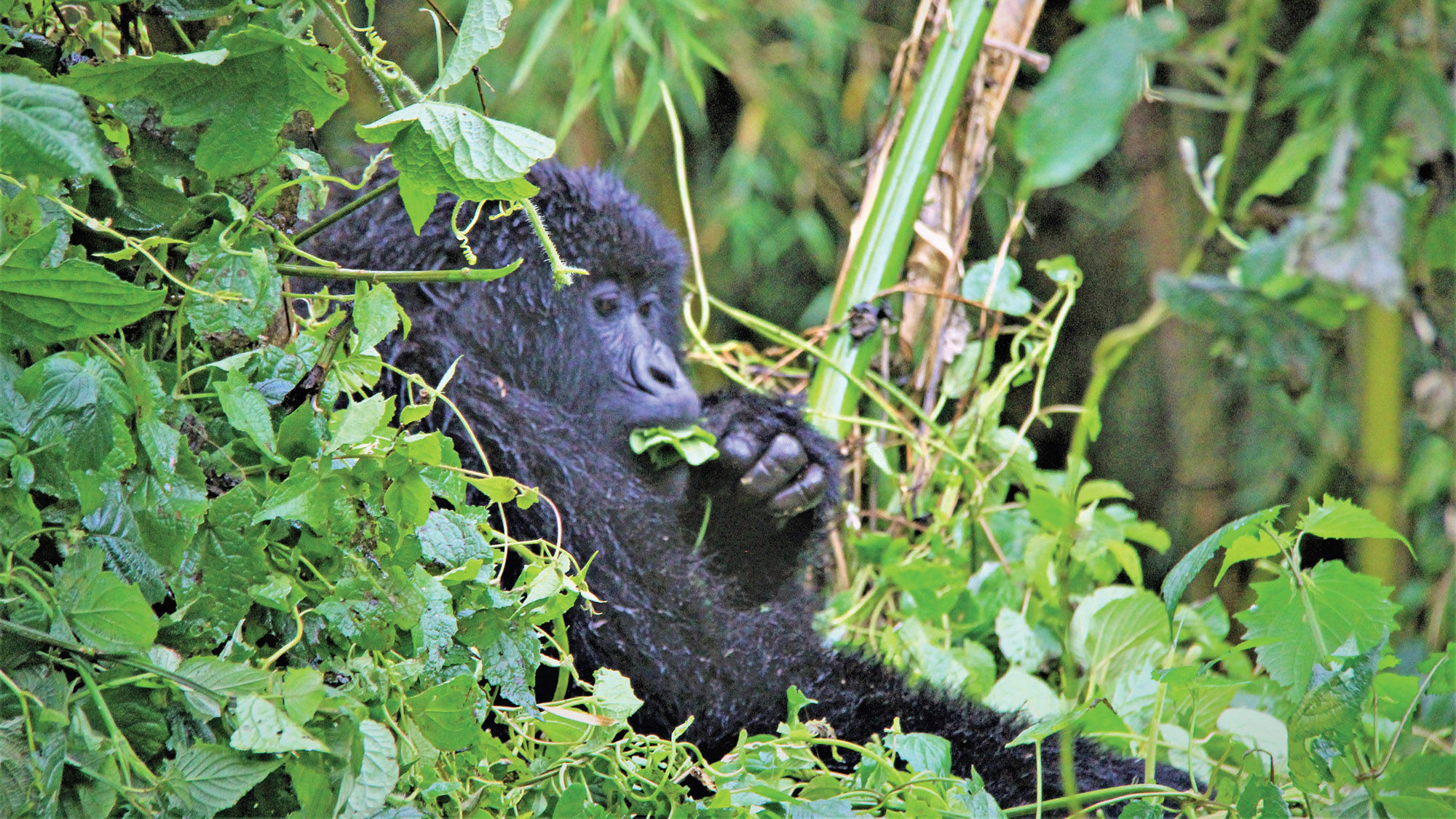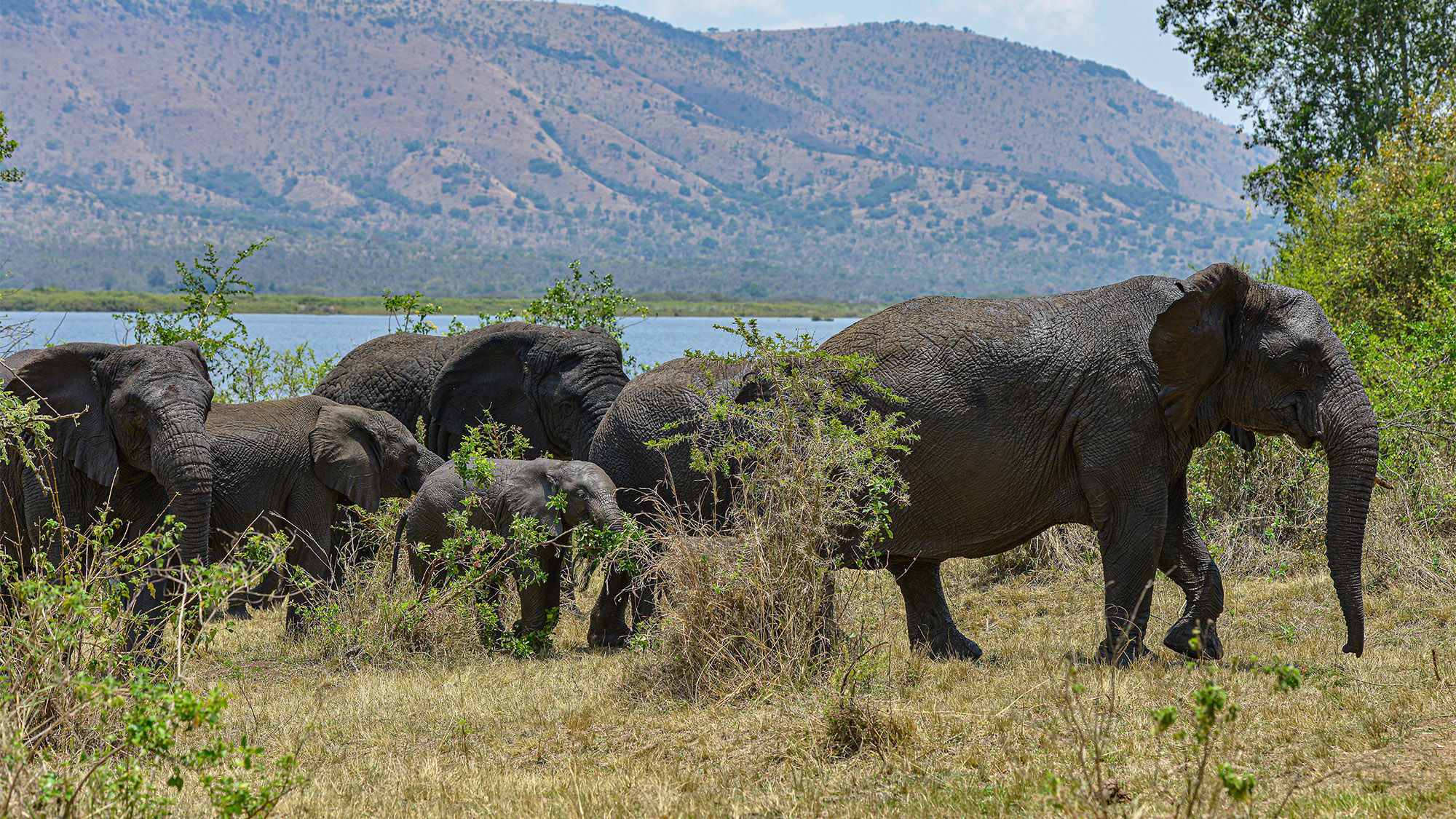
When it comes to tourism, Rwanda is acclaimed for its gorilla- and primate-trekking opportunities. But the country known as “The Land of 1,000 Hills” is also gaining recognition among travelers for its natural beauty as well as its commitment to conservation, its rich cultural heritage and emerging
destinations like Akagera National Park.
Peggy Purtell, a Travel Experts affiliate in Milwaukee, said that Rwanda’s gorilla-trekking has exploded for her business. “Rwanda is magical, the gorilla-trekking is fabulous — I have some clients who have gone multiple times,” she said.
Linda de Sosa, another Travel Experts agent based in Houston, just returned from a gorilla-trekking experience in Rwanda and describes it as a real bucket list treat.
That was the 158th country I’m visiting and I was just enchanted by the people, the hospitality, the scenery, the gorillas, and everything else. It is especially poignant given the genocide in 1994, which is another reason I went as I am getting my phd in genocide and Holocaust studies. I spent a second week, visiting memorials and interviewing historians, survivors, and perpetrators.
De Sosa said visiting the gorillas is not an easy undertaking, but she did point out that for people with mobility issues like herself, there is the option to be carried up the mountain in a basket stretcher.
While the gorillas in Volcanoes National Park are undoubtedly the country’s big draw, Rwanda is also home to chimpanzees as well a host of monkeys —
colobus, golden, L’Hoest’s, owl faced, Dent’s, blue and vervet — not to mention olive baboons and nocturnal primates such as pottos and
bushbabies. These can be found in Nyungwe, one of the oldest rainforests
in Africa. The mountainous region of Nyungwe is teeming with wildlife.
A beautiful accommodation option near the Volcanoes National Park is the
Wilderness’ Bisate Lodge, an eco-chic rainforest lodge. Resembling
giant birds’ nests tucked into the trees, the lodge features six
incredible forest villas. The traditional shapes of the villas nod to
Rwandan culture, while the interiors maximize comfort and warmth, making
the most of the scenic views. Each 91-square-meter villa consists of a
generous yet intimate combination of bedroom, reception space, and
bathroom, with breathtaking views out across your private deck towards
Mount Bisoke.
Beyond Volcanoes National Park and Nyungwe, Elizabeth Gordon of Extraordinary Journeys predicts that Akagera National Park will be gaining attention in 2024.
The park is almost unrecognizable today compared with over 20 years ago, when it was on the verge of being irreparably degraded. Today it is recognized as Central Africa’s largest protected wetland and is home to the Big Five following the recent reintroduction of lions and rhinos, making it the only Big 5 reserve in Rwanda. Akagera is also home to the rare swamp-dwelling sitatunga antelope and shoebill stork; and two favorites of birders: the endangered papyrus gonolex and the red-faced barbet. Akagera is home to more than 500 recorded bird species in all.
A boat trip on Lake Ihema is also a highlight of any visit to Akagera, with its large pods of hippos, Nile crocodiles and abundant waterbirds on the island in the middle of the lake.
Sleeping within the park is possible, at various lodges, a bush camp in the north at select periods or camping in specific sites. A popular option is Mantis Akagera Game Lodge, which stands on a hill at the southern tip of the park above the savannah, offering exceptional views the surroundings, including Lake Ihema. In addition to its 60 rooms, Mantis features a conference venue, restaurant, bar and a pool deck.
The people
Rwanda’s people and its cultural richness are other important drawcards.
“The best part of Rwanda is the people,” said Travel Experts’ Purtell. “Clients come back with a close connection with the people of Rwanda — who always have a smile on their face.”
• Related: Rwanda rising — the renewal of a destination
Travelers can immerse themselves in the traditions and daily life of the Rwandan people. The Umuganda community workday, which takes place on the last Saturday of each month, is a unique opportunity for visitors to join locals in various communal projects, reflecting the nation’s spirit of cooperation and unity.
Tea and coffee tours are also integral to the Rwandan experience. The country’s hilly terrain and fertile soil make it ideal for growing these crops. Visitors can explore the lush tea plantations, learn about the cultivation process, and sample some of the finest teas. Similarly, coffee tours offer insight into the journey of Rwandan coffee from bean to cup, showcasing the importance of this industry in Rwanda’s economy and culture.
Most operators in Rwanda will offer community visits upon request. Singita, for example, offers the unique opportunity to visit the small village of Gasura in the Kinigi sector. The interactive tour takes approximately two hours and includes a range of authentic Rwandese cultural experiences.
Taking guests from house to house in the village, this involves everything from meeting local crafters weaving baskets and carving gorilla-trekking sticks to learning how to process locally produced staples — such as stomping cassava roots and grinding sorghum for flour. It also includes visiting families in their homes to get a glimpse of the local lifestyle.
Source: Read Full Article











